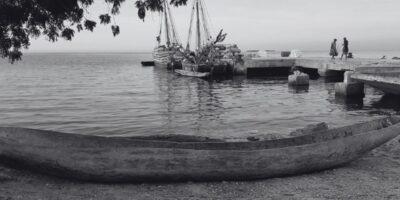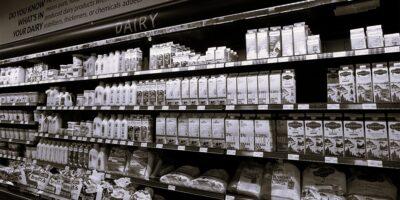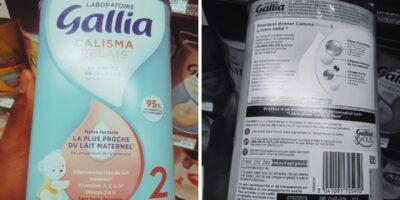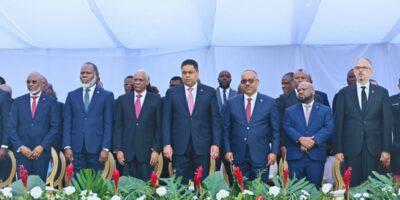Rural women farmers face difficulties in accessing land, according to the sociologist and feminist Tamas Jean Pierre
Rural women represent 70% of the agricultural workforce in Haiti, according to the UN Food and Agriculture Organization (FAO).
Although they make up the majority in the fields, the agricultural sector is largely dominated by men who own the majority of agricultural lands, according to studies.
Women working in agriculture face difficulties in accessing land, says sociologist and feminist Tamas Jean Pierre.
Inheritance is one way to possess land in the country.
Rural women represent 70% of the agricultural workforce in Haiti (according to the FAO).
In Haiti, disputes over land inheritance are also quite common. According to a July 2022 report by « Habitat for Humanity, » a widow who doesn’t know how to protect her land rights can be expelled by her late husband’s family.
The undivided system practiced in the country—where property is not separated among heirs—is one of the reasons behind the inequality in land ownership between men and women, adds Jean Pierre.
A report published in 2017 by the NGO ActionAid revealed that only 11% of women in the Artibonite region hold a property title.
Other reports also illustrate the inequality in property titles between men and women.
Read also: Opinion | Dominée, la femme haïtienne porte encore un fardeau très lourd
UN data from 2015 indicates that in Haiti, 71% of women do not own land or a house, and 20% jointly own property, while only 9% are sole owners.
According to the previous report citing the Ministry of Public Health and Population (MSPP), in 2005 only 8.5% of women were sole landowners, and 16.4% shared land ownership.
However, women’s contribution to agricultural production is estimated to be between 25% to 50%, per the ActionAid report.
In Haiti, disputes over land inheritance are also very common. A widow who does not know how to protect her land rights may be evicted by her deceased husband’s family.
Some women start early in the profession. Gislaine Saint-Fleur, 62 years old and a mother of eight, started in agriculture in 1982.
A member of Mouvman Peyizan Papay (MPP) since 1995, Saint-Fleur coordinates and actively participates in garden work. “I still harvest with a lot of joy because it’s the fruit of my work as a woman,” she tells AyiboPost.
Read also: Dans l’Artibonite, des femmes luttent contre la faim avec les déchets de riz
In the third communal section of Hinche, Questamène Cenor has been cultivating her land for twenty-two years.
According to her statements, Cenor manages to take care of her six children thanks to her agricultural endeavors. « Even when my gardens are my only source of income, I still manage to pay for my children’s education, » the woman shares with AyiboPost.
In her gardens spread over about 6 acres of land, Cenor mainly cultivates maize, bananas, and cassava, which she sells at the local market. « This year, I was satisfied with the cassava harvest. I sold more than 75 sacks at acceptable prices, » she rejoices.
Although women are the majority in the fields, the agricultural sector is largely dominated by men who predominantly own agricultural lands.
In Haiti, several organizations fight for the integration and protection of peasant women, such as Mouvman Peyizan Papay, Mouvman Nasyonal Kongrè Papay, and Tèt Kole Ti Peyizan Ayisyen. These entities are members of La Via Campesina, an international organization bringing together peasants in 80 countries across four continents.
In general, women remain underrepresented in agricultural organizations, according to the specialists consulted by AyiboPost.
MPP, one of the oldest peasant organizations in the country, encouraged the participation of women in agricultural activities since its early years in 1973. According to its founder, Chavannes Jean Baptiste, the organization had to wait until 1975 to see a woman participating in its meetings.
However, as explained by the spokesperson of the Mouvman Peyizan Nasyonal Kongrè Papay (MPNKP), one of the women who participated in this first meeting was physically assaulted by her husband upon her return home, citing that this kind of activity was not meant for women.
Read also: Ce film de marionnettes dénonce les violences faites aux femmes haïtiennes
Ganier, a farmer from the third communal section of Hinche, was the first woman to join the group called “La Patience” within the MPP in 1980. “Ganier had to stand up to her husband’s disapproval,” explains Chavannes Jean Baptiste.
Islanda Micherline Aduel, member of Tèt Kole Ti Peyizan Ayisyen and youth representative for the American continent within La Via Campesina, talks about her struggle within this institution.
“One of the objectives of our struggle is to force the State to take measures to eliminate discrimination against peasants and other women living in rural areas,” punctuates Aduel.
One of the women who participated in this […] meeting was beaten by her husband as soon as she returned home, claiming that this type of activity is not intended for women.
Women, like men, find it difficult to obtain credit at advantageous rates for agricultural activities in Haiti.
Organizations like Tèt Kole Ti Peyizan rely on the Mutual Solidarity technique (MUSO). This is a social and cooperative-based economic approach allowing peasant women to access preferential loans in order to escape the exorbitant interest rates of commercial banks.
In the context of conflicts between Haiti and the Dominican Republic, where the trade balance weighs largely in favor of the neighboring country, some are speaking out to demand more investment in local agricultural production.
“Men and women face almost the same problems because of the lack of political will from leaders,” analyzes agronomist Pierre Saintalus, departmental coordinator of the Promotion for Development Organization Center (PROMODEV).
Women, like men, find it difficult to obtain credit at advantageous rates for agricultural activities in Haiti.
In the context of climate change, farmers do not have access to improved seed varieties capable of withstanding and producing in a hot climate, says the agronomist.
The geographical positioning of Haiti in the Caribbean basin heightens the country’s exposure to cyclones and storms. In this situation, farmers do not benefit from any economic protection and insurance from the State, denounces the PROMODEV Center coordinator.
Added to this is the absence of agricultural loans and the dysfunction of the municipal agricultural office (BAC) which greatly affect farmers who need the financial means to cultivate.
Read also: L’ONA prête mal et place incorrectement l’argent des contribuablesy
Additionally, agronomist Saintalus sees the social imbalance caused by widespread insecurity in the country, as another problem affecting the agricultural sector. “This situation has considerably reduced agricultural production and increased imports to meet the food needs of the population.
Cover image: freepik
Stay in touch with AyiboPost through :
► Our WhatsApp channel : click here
► Our WhatsApp Community : click here
► Our Telegram canal : click here







Comments